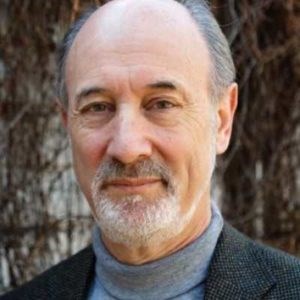Last week, I noted that economic growth, as presently understood and practised, is harmful, indeed malignant. This is not to say that some places don’t need economic development, and indeed economic growth. Low-income countries need a sufficiently large economy that they can afford to meet basic human needs for all. Those needs include clean water, sanitation, education, adequate supplies of nutritious foods, adequate housing, and good public health and primary medical care.
But it is hard to see how accumulation of more wealth by Canadians is going to help them; we already have too much. In fact, our profligate use of fossil fuels and other resources — both our own and theirs — and the concomitant production of waste and pollution, actually presents a danger to them. It is primarily low-income populations in low-income countries that will suffer most from climate change, resource depletion, pollution and loss of species.
In a finite world already showing signs of ecosystem decline, the pie cannot keep growing, so it has to be distributed more fairly. If low-income countries need more of the Earth’s resources for their own development, then this can only happen if we use less. So what are we to do?
A good place to start would be to get rid of “bad” economic growth — all forms of economic activity that actually make things worse by harming health, social well-being and the natural systems that are our ultimate source of health. This would include all forms of pollution, including air pollutants and greenhouse gases associated with fossil-fuel use, tobacco and other products that harm health, and further production of more “stuff” that we don’t need.
This calls for a very different system of economics. Ecological economists have been critiquing the standard model of the economy for decades. Chief among them here in Canada is Peter Victor, former dean of the Faculty of Environmental Studies at York University. His 2008 book Managing Without Growth explored both a “business as usual” (continuing growth) economy and a variety of alternative low- and no-growth scenarios for the period between 2005 and 2035.
He found that while a no-growth scenario could be disastrous, the right combination of low then no growth by 2035, with high government investment in poverty reduction, literacy and health care and a revenue-neutral carbon tax (at about $200 per tonne, with other taxes reduced) could lead to “attractive economic, social and environmental outcomes: full employment, virtual elimination of poverty, more leisure, considerable reductions in greenhouse-gas emissions and fiscal balance,” as well as wide adoption of renewable energy and energy-efficient technology and other benefits, including increased GDP per capita, if achieved without increased energy and resource use.
Similarly, Dan O’Neill, another Canadian, now teaching ecological economics at the University of Leeds in the U.K., has championed the “steady state” economy proposed in the 1970s by Herman Daly. Recently, in his foreword to the book Enough is Enough that O’Neill co-authored with Rob Dietz, Daly states, simply: “Enough should be the central concept in economics,” where enough means “sufficient for a good life.”
In their book, Dietz and O’Neill contrast an economy of enough with the present economy of more, summarizing the latter as destined to fail “environmentally as it exhausts natural resources and exceeds ecological limits” and socially, as “diminishing returns to growth [mean that] after a point, more fails to improve people’s lives.”
A compelling case for an economy that is fit for purpose in the 21st century has been put forward by Kate Raworth in her book Doughnut Economics. The essence of such an economy is that it be large enough and distributed fairly enough that we can meet the needs of everyone on Earth for good health and a good quality of life. But at the same time, the economy cannot be so large that it undermines the ecological systems that ultimately determine our well-being.
For rich countries in particular, Raworth notes, this will require them to “overcome their dependency on GDP growth and develop economies that are regenerative and distributive by design.” Creating an economy that regenerates damaged natural ecosystems and distributes benefits more fairly is perhaps the greatest challenge we face in the 21st century.
Dr. Trevor Hancock is a retired professor and senior scholar at the University of Victoria’s School of Public Health and Social Policy.



